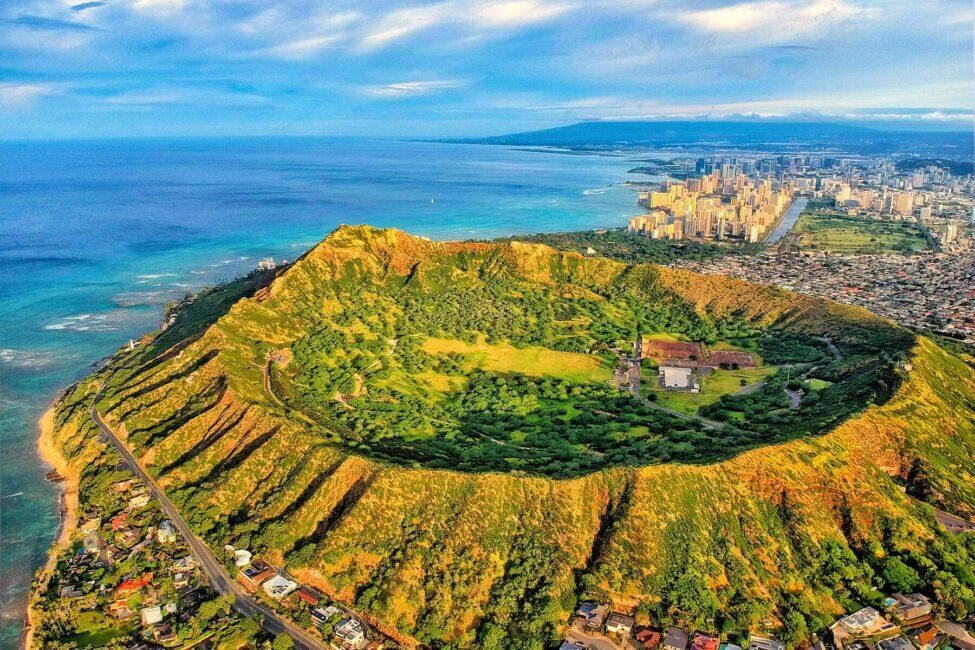Is it ethical to travel to Hawaii in 2024? Absolutely, with mindful planning and a commitment to responsible tourism. SIXT.VN encourages travelers to explore the beauty of Hawaii while respecting its culture and environment. By choosing sustainable practices, supporting local businesses, and engaging in cultural sensitivity, you can enjoy a rewarding trip to Hawaii. Consider SIXT.VN’s services for hassle-free travel planning. Explore ecotourism, volunteer opportunities, and cultural immersion for a deeper, more ethical travel experience.
1. Understanding the Ethical Considerations of Traveling to Hawaii in 2024
Traveling to Hawaii in 2024 involves several ethical considerations that tourists should be aware of. Tourism can have both positive and negative impacts on local communities, the environment, and cultural heritage. A mindful approach helps minimize negative effects and maximize positive contributions.
1.1. The Impact of Tourism on Hawaii’s Environment and Culture
Tourism significantly impacts Hawaii’s environment and culture. Over-tourism can strain natural resources, leading to environmental degradation. According to a study by the University of Hawaii Economic Research Organization (UHERO) in 2022, increased tourism contributes to pollution, habitat destruction, and water scarcity. Simultaneously, cultural sites can suffer from disrespect and commercialization, diluting their authenticity. Thoughtful travelers aim to minimize these negative impacts.
1.2. Post-Maui Fires: A Sensitive Time for Tourism
Following the devastating Maui fires, tourism becomes particularly sensitive. The disaster exacerbated existing concerns about over-tourism, resource allocation, and community resilience. Continuing to visit Maui requires a commitment to supporting recovery efforts and respecting the grieving community. The Hawaii Tourism Authority (HTA) emphasizes the importance of responsible tourism during this period.
1.3. Indigenous Perspectives on Tourism in Hawaii
Indigenous voices highlight the need for a more respectful and sustainable tourism model. Native Hawaiians have long expressed concerns about the commodification of their culture and land. Activists like Dr. Kealoha Fox advocate for tourism that honors Hawaiian traditions and supports community well-being. Respecting indigenous perspectives is essential for ethical travel.
2. Ethical Travel Practices for a Trip to Hawaii in 2024
Adopting ethical travel practices can transform your Hawaiian vacation into a positive experience for both you and the local community. These practices focus on minimizing harm, supporting local economies, and respecting Hawaiian culture.
2.1. Regenerative Tourism: Leaving Hawaii Better Than You Found It
Regenerative tourism aims to improve the environment and community through travel. This involves engaging in activities that restore ecosystems, support local businesses, and promote cultural understanding. Regenerative travel goes beyond sustainability, actively contributing to the well-being of Hawaii.
2.2. Supporting Local Businesses and Economies
Supporting local businesses ensures that your money benefits the Hawaiian community directly. Patronize local restaurants, shops, and tour operators that prioritize sustainability and fair labor practices. This boosts the local economy and helps preserve Hawaii’s unique character.
2.3. Respecting Hawaiian Culture and Traditions
Respecting Hawaiian culture involves learning about and honoring local traditions. Participate in cultural activities responsibly, and be mindful of sacred sites. The Bishop Museum and the Hawaii Tourism Authority’s website, “Go Hawaii,” offer resources for understanding Hawaiian history and culture.
 Bishop Museum is a fantastic resource
Bishop Museum is a fantastic resource
2.4. Minimizing Environmental Impact: Sustainable Travel Tips
Minimizing your environmental impact is crucial for preserving Hawaii’s natural beauty. Use reef-safe sunscreen, reduce plastic consumption, and choose eco-friendly transportation options. Simple changes can make a significant difference in protecting Hawaii’s fragile ecosystems.
2.4.1. Choosing Eco-Friendly Accommodations
Opt for accommodations that prioritize sustainability, such as hotels with green certifications or locally-owned bed and breakfasts committed to eco-friendly practices.
2.4.2. Reducing Plastic Consumption
Bring a reusable water bottle, shopping bag, and utensils to minimize plastic waste. Refuse single-use plastics whenever possible.
2.4.3. Using Reef-Safe Sunscreen
Choose sunscreen that is free of harmful chemicals like oxybenzone and octinoxate to protect Hawaii’s coral reefs.
2.5. Volunteering and Giving Back to the Community
Volunteering is a meaningful way to give back to the Hawaiian community. Participate in beach cleanups, habitat restoration projects, or cultural preservation efforts. Kanu Hawaii offers a platform for finding volunteer opportunities.
3. Planning an Ethical Trip to Hawaii in 2024: A Step-by-Step Guide
Planning an ethical trip to Hawaii involves careful consideration of your itinerary, activities, and interactions with the local community. Here’s a step-by-step guide to help you plan a responsible vacation.
3.1. Researching and Selecting Ethical Tour Operators
Choose tour operators committed to sustainable practices, cultural sensitivity, and community engagement. Look for certifications and reviews that indicate a company’s dedication to responsible tourism. Kilohana is working to create a quality assurance program for tour operators.
3.2. Choosing Accommodations That Align With Your Values
Select accommodations that prioritize sustainability, support local communities, and respect Hawaiian culture. Eco-friendly hotels, locally-owned bed and breakfasts, and vacation rentals that give back to the community are excellent options.
3.3. Creating an Itinerary That Balances Relaxation and Responsibility
Design an itinerary that includes both relaxation and opportunities to engage with the local community and environment. Balance popular tourist attractions with off-the-beaten-path experiences that support sustainable tourism.
3.4. Booking Flights and Transportation With a Focus on Sustainability
Consider booking direct flights to reduce your carbon footprint. Once in Hawaii, utilize public transportation, biking, or walking to minimize your environmental impact.
3.5. Packing Essentials for Ethical Travel
Pack items that support sustainable practices, such as reef-safe sunscreen, reusable water bottles, shopping bags, and utensils.
4. Navigating Hawaii’s Popular Attractions Ethically
Even popular tourist attractions can be experienced ethically with mindful planning and responsible behavior.
4.1. Visiting Pearl Harbor With Respect and Sensitivity
When visiting Pearl Harbor, maintain a respectful demeanor and learn about the historical significance of the site. Avoid taking insensitive photos and be mindful of the solemn atmosphere.
4.2. Hiking Diamond Head Responsibly
Diamond Head requires reservations for out-of-state visitors to manage traffic and minimize environmental impact. Respect the natural environment by staying on marked trails and avoiding littering.
 Diamond Head offers panoramic views of Waikiki and the surrounding coastline
Diamond Head offers panoramic views of Waikiki and the surrounding coastline
4.3. Exploring Volcanoes National Park Sustainably
Volcanoes National Park offers incredible natural beauty, but it’s essential to explore it sustainably. Stay on marked trails, avoid disturbing wildlife, and follow park regulations.
4.4. Snorkeling and Diving Responsibly to Protect Coral Reefs
Protect coral reefs by using reef-safe sunscreen, avoiding touching or standing on coral, and maintaining a safe distance from marine life.
4.5. Attending Luaus Respectfully
Choose luaus that prioritize cultural authenticity and respect. Avoid luaus that perpetuate stereotypes or exploit Hawaiian culture.
5. Supporting Local Initiatives and Organizations in Hawaii
Supporting local initiatives and organizations is a tangible way to contribute to the well-being of Hawaii.
5.1. Donating to Environmental Conservation Groups
Donate to organizations dedicated to protecting Hawaii’s natural resources, such as the Hawaii Conservation Alliance or the Nature Conservancy of Hawaii.
5.2. Supporting Cultural Preservation Efforts
Support organizations that preserve and promote Hawaiian culture, such as the Polynesian Voyaging Society or the Bishop Museum.
5.3. Volunteering Time and Resources to Community Projects
Volunteer your time and resources to community projects that address local needs, such as food banks, homeless shelters, or educational programs.
5.4. Purchasing Goods and Services From Local Artisans and Farmers
Support local artisans and farmers by purchasing their goods and services. This helps boost the local economy and preserve traditional crafts and agricultural practices.
6. The Role of Travel Agencies in Promoting Ethical Tourism to Hawaii
Travel agencies play a crucial role in promoting ethical tourism by educating travelers, partnering with responsible tour operators, and advocating for sustainable practices.
6.1. How Travel Agencies Can Educate Travelers About Ethical Tourism
Travel agencies can educate travelers about ethical tourism by providing information on sustainable practices, cultural sensitivity, and responsible travel options.
6.2. Partnering With Responsible Tour Operators and Accommodations
Travel agencies can partner with tour operators and accommodations that prioritize sustainability, community engagement, and cultural respect.
6.3. Advocating for Sustainable Practices in the Tourism Industry
Travel agencies can advocate for sustainable practices in the tourism industry by promoting responsible travel options, supporting local initiatives, and encouraging travelers to make ethical choices.
SIXT.VN can assist travelers in making ethical choices by offering curated travel packages that focus on sustainability, cultural immersion, and community support.
7. Understanding the Mālama Hawai’i Program
The Mālama Hawai’i Program encourages visitors to engage in activities that care for the land and community.
7.1. What is the Mālama Hawai’i Program?
The Mālama Hawai’i Program is an initiative that promotes responsible tourism by encouraging visitors to participate in activities that give back to the community and environment.
7.2. How to Participate in the Mālama Hawai’i Program
Visitors can participate in the Mālama Hawai’i Program by volunteering in conservation projects, supporting local businesses, and engaging in cultural activities that promote respect and understanding.
7.3. Benefits of Participating in the Mālama Hawai’i Program
Participating in the Mālama Hawai’i Program enriches your travel experience, supports local communities, and helps preserve Hawaii’s natural and cultural heritage.
8. The Pledge to Our Keiki: A Commitment to Responsible Tourism
The Pledge to Our Keiki is a commitment from tourists to respect and care for the islands as if they were their children.
8.1. What is the Pledge to Our Keiki?
The Pledge to Our Keiki is an initiative created by local students and community leaders, urging tourists to respect and care for the islands.
8.2. How to Take the Pledge to Our Keiki
Tourists can take the Pledge to Our Keiki by visiting the Kanu Hawaii website and committing to respect and care for the islands.
8.3. The Impact of the Pledge to Our Keiki on Tourism in Hawaii
The Pledge to Our Keiki promotes responsible tourism by encouraging visitors to be mindful, respectful, and engaged in preserving Hawaii’s natural and cultural heritage.
9. Respecting Sacred Sites and Cultural Practices in Hawaii
Respecting sacred sites and cultural practices is essential for ethical travel in Hawaii.
9.1. Understanding the Significance of Sacred Sites
Sacred sites in Hawaii hold deep cultural and historical significance. Visitors should approach these sites with reverence and respect.
9.2. Guidelines for Visiting Sacred Sites
Follow guidelines for visiting sacred sites, such as removing shoes, avoiding loud noises, and refraining from touching or climbing on structures.
9.3. Participating in Cultural Practices With Respect
Participate in cultural practices with respect by learning about their significance, following local customs, and seeking guidance from community leaders.
 Visitors can express aloha by spending some part of your time giving back to the place and the people that this is home
Visitors can express aloha by spending some part of your time giving back to the place and the people that this is home
10. Addressing Over-Tourism in Hawaii: Solutions and Strategies
Addressing over-tourism requires a multi-faceted approach involving government regulation, community engagement, and responsible traveler behavior.
10.1. Government Regulations and Initiatives to Manage Tourism
Government regulations and initiatives, such as reservation systems and visitor fees, can help manage tourism and minimize its negative impacts.
10.2. Community-Based Tourism Initiatives
Community-based tourism initiatives empower local communities to manage tourism and benefit from its economic opportunities.
10.3. The Role of Travelers in Addressing Over-Tourism
Travelers play a crucial role in addressing over-tourism by choosing sustainable practices, supporting local businesses, and respecting Hawaiian culture.
11. Staying Informed About Current Issues Affecting Tourism in Hawaii
Staying informed about current issues ensures that your travel decisions are ethical and responsible.
11.1. Following Local News and Media Outlets
Follow local news and media outlets to stay informed about current issues affecting tourism in Hawaii, such as environmental concerns, cultural preservation efforts, and community initiatives.
11.2. Engaging With Local Communities and Organizations
Engage with local communities and organizations to learn about their perspectives on tourism and how you can support their efforts.
11.3. Staying Updated on Travel Advisories and Guidelines
Stay updated on travel advisories and guidelines issued by government agencies and tourism organizations to ensure your safety and responsible behavior.
12. Ethical Considerations for Different Islands in Hawaii
Each island in Hawaii has unique ethical considerations that travelers should be aware of.
12.1. Ethical Travel on Oahu
On Oahu, consider the impacts of over-tourism on popular sites like Waikiki and Diamond Head. Support local businesses and explore less-visited areas to distribute economic benefits and reduce congestion.
12.2. Ethical Travel on Maui
Following the Maui fires, prioritize supporting recovery efforts and respecting the grieving community. Volunteer in cleanup and restoration projects, and patronize local businesses that are rebuilding.
12.3. Ethical Travel on Kauai
On Kauai, protect the island’s natural beauty by practicing sustainable hiking, avoiding single-use plastics, and supporting local farmers.
12.4. Ethical Travel on Hawaii Island (Big Island)
On the Big Island, respect the volcanic landscape and fragile ecosystems. Support local farmers and artisans, and learn about Hawaiian culture and history.
12.5. Ethical Travel on Molokai and Lanai
On Molokai and Lanai, prioritize cultural sensitivity and community engagement. Support local businesses and respect the islands’ unique traditions and way of life.
13. Resources for Planning an Ethical Trip to Hawaii
Several resources can help you plan an ethical trip to Hawaii.
13.1. Websites and Online Platforms for Ethical Travel Information
Websites and online platforms, such as the Hawaii Tourism Authority’s website and Kanu Hawaii, provide valuable information on ethical travel practices and opportunities.
13.2. Books and Guides on Responsible Tourism in Hawaii
Books and guides on responsible tourism in Hawaii offer insights into Hawaiian culture, history, and sustainable practices.
13.3. Local Organizations and Initiatives Promoting Ethical Tourism
Local organizations and initiatives, such as the Hawaii Conservation Alliance and the Polynesian Voyaging Society, promote ethical tourism and offer opportunities for engagement.
14. The Future of Ethical Tourism in Hawaii
The future of ethical tourism in Hawaii depends on collaboration between government, communities, and travelers.
14.1. Trends and Developments in Sustainable Tourism
Trends and developments in sustainable tourism, such as regenerative travel and community-based tourism, offer opportunities for positive change.
14.2. The Role of Technology in Promoting Ethical Tourism
Technology can play a role in promoting ethical tourism by providing information, connecting travelers with local communities, and tracking sustainable practices.
14.3. The Importance of Collaboration for a Sustainable Future
Collaboration between government, communities, and travelers is essential for creating a sustainable future for tourism in Hawaii.
15. SIXT.VN: Your Partner for Ethical and Sustainable Travel to Vietnam
While focusing on ethical travel to Hawaii, it’s important to highlight that SIXT.VN is your ideal partner for exploring Vietnam responsibly.
15.1. How SIXT.VN Promotes Ethical Travel Practices
SIXT.VN is committed to promoting ethical travel practices by partnering with local communities, supporting sustainable initiatives, and educating travelers about responsible behavior.
15.2. Sustainable Tourism Options With SIXT.VN
SIXT.VN offers a variety of sustainable tourism options, including eco-tours, cultural immersion experiences, and community-based tourism initiatives.
15.3. Contact SIXT.VN for Ethical Travel Planning
Contact SIXT.VN today to plan an ethical and sustainable trip to Vietnam. Our expert team can help you create an itinerary that aligns with your values and supports local communities.
Address: 260 Cau Giay, Hanoi, Vietnam
Hotline/Whatsapp: +84 986 244 358
Website: SIXT.VN
FAQ: Ethical Travel to Hawaii in 2024
1. Is it okay to travel to Hawaii right now?
Yes, with mindful planning and a commitment to responsible tourism. Be aware of the impact of your visit and strive to minimize negative effects while supporting local communities.
2. How can I be a responsible tourist in Hawaii?
Support local businesses, respect Hawaiian culture, minimize your environmental impact, and consider volunteering or donating to local initiatives.
3. What is regenerative tourism, and how can I participate?
Regenerative tourism aims to leave a place better than you found it. Participate in activities that restore ecosystems, support local communities, and promote cultural understanding.
4. How can I minimize my environmental impact while traveling in Hawaii?
Use reef-safe sunscreen, reduce plastic consumption, choose eco-friendly accommodations, and utilize public transportation.
5. What are some volunteer opportunities in Hawaii?
Kanu Hawaii offers a platform for finding volunteer opportunities in conservation, cultural preservation, and community support.
6. How can I respect Hawaiian culture and traditions?
Learn about Hawaiian history and culture, participate in cultural activities responsibly, and be mindful of sacred sites.
7. What is the Mālama Hawai’i Program, and how can I participate?
The Mālama Hawai’i Program encourages visitors to engage in activities that care for the land and community. Participate by volunteering, supporting local businesses, and engaging in cultural activities.
8. How can travel agencies promote ethical tourism to Hawaii?
Travel agencies can educate travelers, partner with responsible tour operators, and advocate for sustainable practices in the tourism industry.
9. How can I stay informed about current issues affecting tourism in Hawaii?
Follow local news and media outlets, engage with local communities, and stay updated on travel advisories and guidelines.
10. What are some resources for planning an ethical trip to Hawaii?
Websites like the Hawaii Tourism Authority and Kanu Hawaii, books and guides on responsible tourism, and local organizations promoting ethical tourism can provide valuable information and support.
By adopting ethical travel practices, you can contribute to the well-being of Hawaii and enjoy a rewarding and meaningful vacation. Choose SIXT.VN to help you plan your responsible travel journey.



